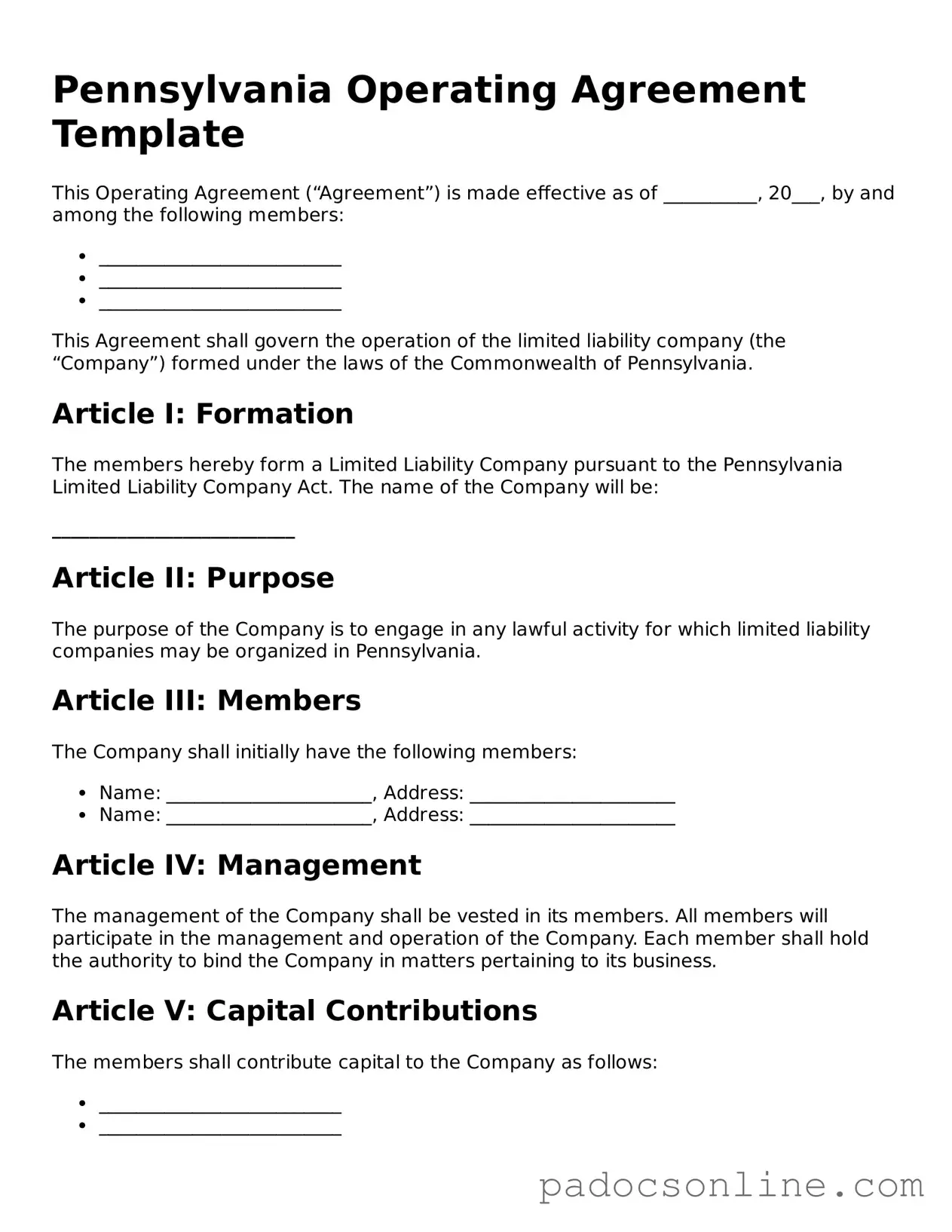Filling out the Pennsylvania Operating Agreement form can be a straightforward task, but many people make common mistakes that can lead to complications down the line. One frequent error is not including all necessary member names. Each member of the LLC should be clearly listed, along with their roles and contributions. Omitting even one member can create confusion and potential legal issues.
Another mistake is failing to specify the management structure of the LLC. It is crucial to indicate whether the company will be member-managed or manager-managed. This decision affects how the business operates and who has authority to make decisions. Clarity in this section helps avoid disputes among members.
Some individuals neglect to outline the financial arrangements. This includes detailing how profits and losses will be distributed among members. Without clear guidelines, misunderstandings about financial expectations may arise, leading to conflicts in the future.
Additionally, people often overlook the importance of including a buy-sell agreement. This agreement outlines what happens if a member wants to leave the LLC or if a member passes away. Having this in place can protect the interests of all members and ensure a smooth transition.
Inaccurate or inconsistent information is another common pitfall. It’s essential to double-check that all names, addresses, and other details are correct and consistent throughout the document. Discrepancies can lead to legal complications or issues with the state.
Some individuals also fail to include a dispute resolution clause. This clause can save time and money by providing a clear process for resolving disagreements among members. Without it, members may find themselves in lengthy and costly legal battles.
Not updating the Operating Agreement when changes occur is another mistake. Life events, such as a member leaving or new members joining, should prompt a review and potential amendment of the agreement. Keeping the document current is vital for the smooth operation of the LLC.
People sometimes forget to sign and date the agreement. An unsigned document may not hold up in court, which can invalidate the terms agreed upon. Each member should ensure that the agreement is properly executed to be legally binding.
Lastly, many do not seek legal advice when drafting their Operating Agreement. While it may seem like a simple form, consulting with a legal professional can provide valuable insights and help avoid potential pitfalls. Ensuring that the agreement complies with Pennsylvania law is crucial for its effectiveness.
